BBC Radio 1 controller Ben Cooper knows that coaching radio personalities is easier for program directors who understand the mindset of radio talents.
He appointed Nick Grimshaw as presenter of The Radio 1 Breakfast Show, who’s career story demonstrates that you can get far if you combine a positive mental attitude with a clearly focused goal. “I was like: I just want to do that show.” This and more we learn from a great session during the Radio Festival 2012 (see also part 1 and part 2).
“Good radio is a natural evolution of what you like”
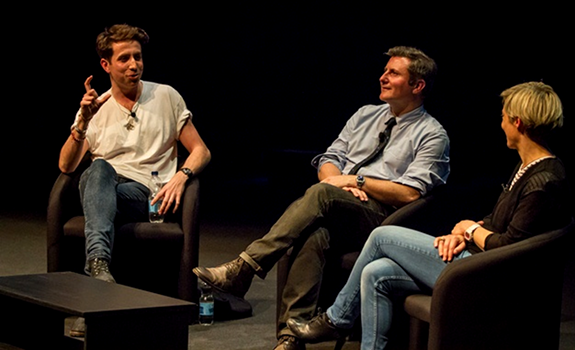
The Radio 1 Breakfast Show host Nick Grimshaw (left), here on stage with his boss Ben Cooper and session host Miranda Sawyer, knows that it takes time develop yourself as a radio personality (photo: The Radio Academy)
Take calculated programming risks
In September 2012, Nick Grimshaw took over the The Radio 1 Breakfast Show from Chris Moyles, who presented it for 8½ years. “A new voice at breakfast time is going to affect the audience”, Ben Cooper says. He does realize that dramatic programming changes may cause hardcore fans to leave. At the same time, a change might attract new listeners who tune in to sample the new program. The controller has a lot of faith in the young radio personality, saying that he knew it for sure: Grimshaw was the one to do The Radio 1 Breakfast Show. “He’s sounding good; he’s funny and engaging. We are getting better interviews with Nick and we are seeing some really strong AI scores amongst younger audiences. I think he’s brilliant.”
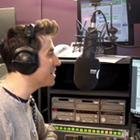 Find your personality focus
Find your personality focus
Nick Grimshaw (photo) joined BBC Radio 1 in 2007. His first programs included a weekend morning show. Later he covered weekday late nights. The presenter had to take enough time to find the course for the show. “I remember being nervous; not really knowing what I was doing for probably about 3 or 4 months. Then I’ve got it – I like this; I don’t like that. I think that makes good radio. It’s a natural evolution of what you like, rather than planning all before you start.”
Capture listeners by storytelling
In his experience, doing mornings is fundamentally different: “At night I was conscious of rambling about Justin Bieber’s haircut or what’s on EastEnders, whereas in the morning I feel more comfortable in chatting and wanking on.” Presenting a morning show also involves interviewing pop stars. “It’s almost easier having those guests in. They’re there to promote their album and they’ve got to be enthusiastic; there are 7 million people listening.” Grimmy has a busy night life and has many celebrity friends, therefore he’s well known from tabloids and television. Although it may help to promote the show, Ben Cooper doesn’t consider this public exposure to be essential for success. “The thing that I love about Nick is his ability to tell a story. Radio is all about the ability to engage someone and take him on a journey with a story.”
“There are many ways that we can find people
who can connect and tell that great story”
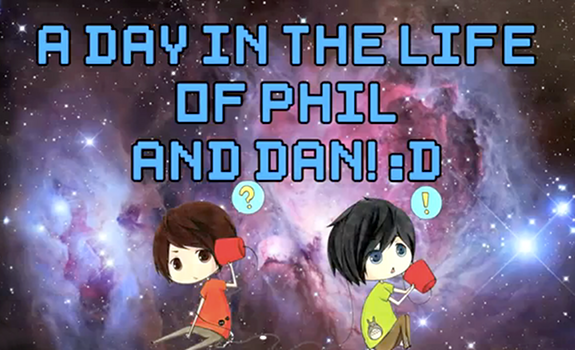
Radio personalities are also being discovered outside traditional media: BBC Radio 1 controller Ben Cooper says that two UK video bloggers (vloggers) have been contracted for a show on the station (image: YouTube / AmazingPhil)
Set ultimate career goal
Ben Cooper recalls that when he asked Grimshaw to present the morning show, the young presenter said that it was “a childhood dream come true”. Just like in the interview with Scott Mills, it goes to show again how important it is to focus on one specific target and hold on to it. Grimshaw reveals that he’s always been a hardcore BBC Radio 1 listener and that since he was about 10 years old, he knew that he didn’t want to be just ‘on the radio’, but to present the breakfast show on Radio 1. “My mum and dad were a bit like: it’s quite specific… don’t you want to do anything else? I was like: no, I just want to do that show.” He says that his parents were thrilled and ecstatic when it actually happened, 18 years later. “My dad went for a walk, which I think is a northern man’s way of crying.”
[audio:http://www.radioiloveit.com/wp-content/uploads/nick-grimshaw-bbc-radio-1-radio-festival-2012-01.mp3|titles=Nick Grimshaw always wanted to present The Radio 1 Breakfast Show]
 Get honest aircheck feedback
Get honest aircheck feedback
Like many radio presenters, in the first years it was all about get as much experience as possible. “I went to uni at Liverpool and me and my friend did student radio pretty much every day. Some days we wouldn’t turn up because we were drunk and things.” What he did was record shows and play them to others for feedback, such as his parents and sister. “They told me what bits they liked or when it didn’t sound like me.” His advice for young radio talents: “Do as much as you can, figure out what you like, and listen to lots of radio.”
Live your radio passion
BBC Radio 1 controller Ben Cooper is interested in radio talents with a good voice who are great storytellers. He says it’s also important to “create a buzz around what you do” and have some kind of proof to show for it. “If you love music, I want to see the fact that you’ve maybe put on a night at the local pub with local bands on. If it’s about being an entertaining presenter, then do you do funny things; do you do stand up or videos? There are many ways that we can find people who can connect and tell that great story. I have just taken on Dan and Phil. They’re going to do the Request Show and have nearly a million followers on their YouTube channel. That’s more than the slot they’re going into has listeners. But Grimmy is right – if you want to present, present. Get yourself into a studio and just learn who you are when you are on the air.”
“Most presenters have this really split personality
of insecurity and overconfidence”
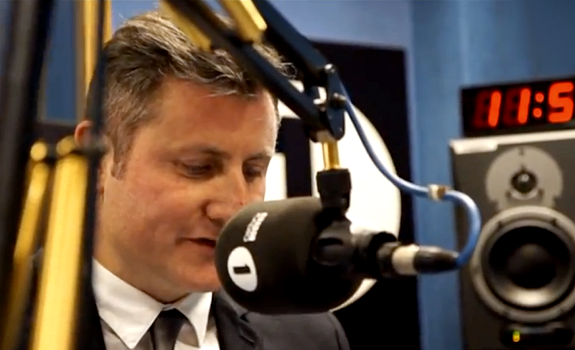
BBC Radio 1 controller Ben Cooper, here announcing Nick Grimshaw as the new morning show presenter, feels that human empathy and psychological insight are must-have skills for program directors (photo: YouTube / bbcradio1)
Program with on-air experience
It’s also a station of radio personalities, and every program director knows that working with them can be a challenge. “How can you manage talent if what you want are mavericks on the radio?”, session host Miranda Sawyer wants to know. Cooper thinks that it’s all about the relation. “I’ve helped in building relationships with presenters because I did present. I know the feeling when you get the red light going on with a mixture of excitement and nerves.” As a controller of the station, he wants to create an atmosphere where talented people get all the tools and guidance they need, but also enough freedom to take risks – which often leads to “great creative programs” that are “exciting to listen to”.
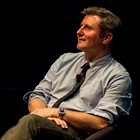 Manage talents using psychology
Manage talents using psychology
Cooper learned that coaching radio talents becomes easier if you’re a program director who can appreciate the mindset of radio personalties and develop people management skills. “Most presenters have this really split personality of insecurity and overconfidence. Trying to understand that and having the right conversations at the right time is an important job”, he says. “It’s like being a psychiatrist – you have to work out what buttons to press and at what time.”
Read also:
- “Radio Is Dead, Long Live Radio”
- “Brilliant Radio Is The Train That Pulls The Carriages”
- Personality (related articles)
Stay tuned, follow us @RadioILOVEIT and click below to share this post:





Add Your Comment